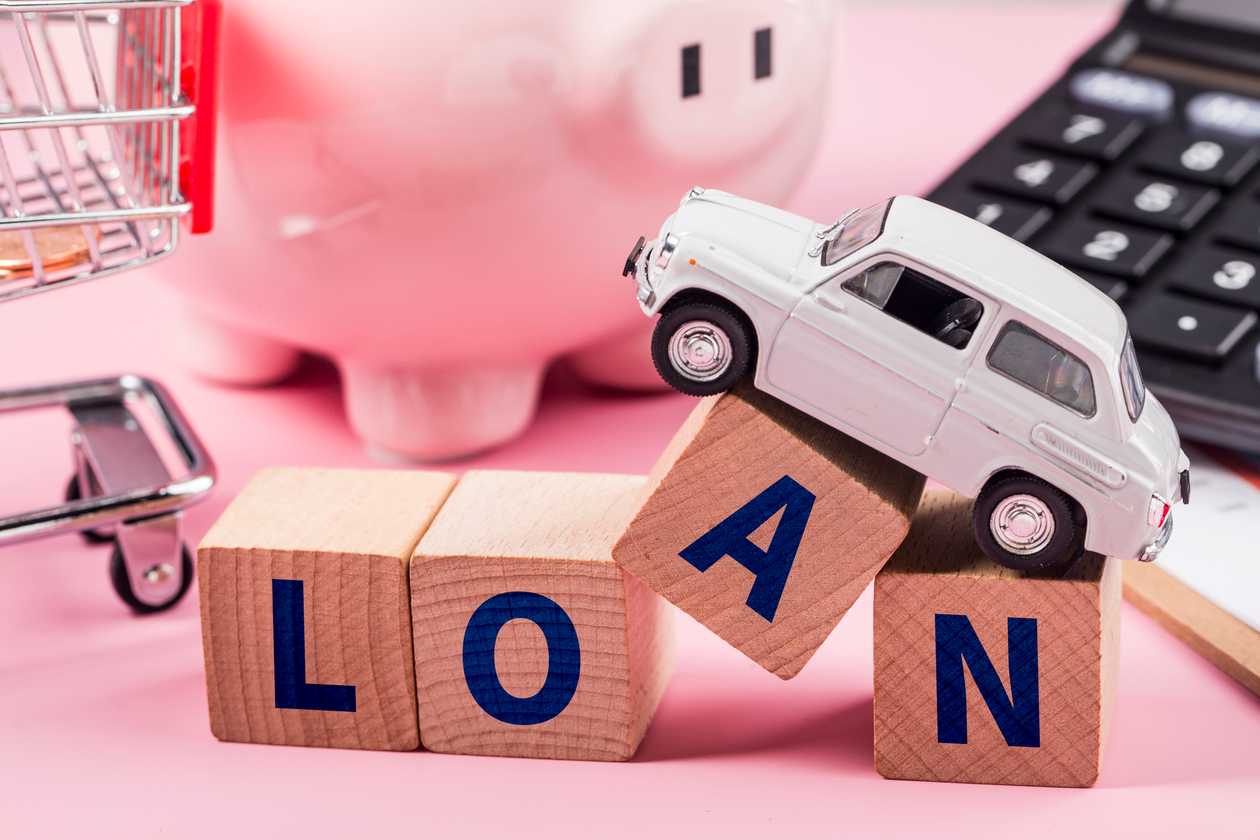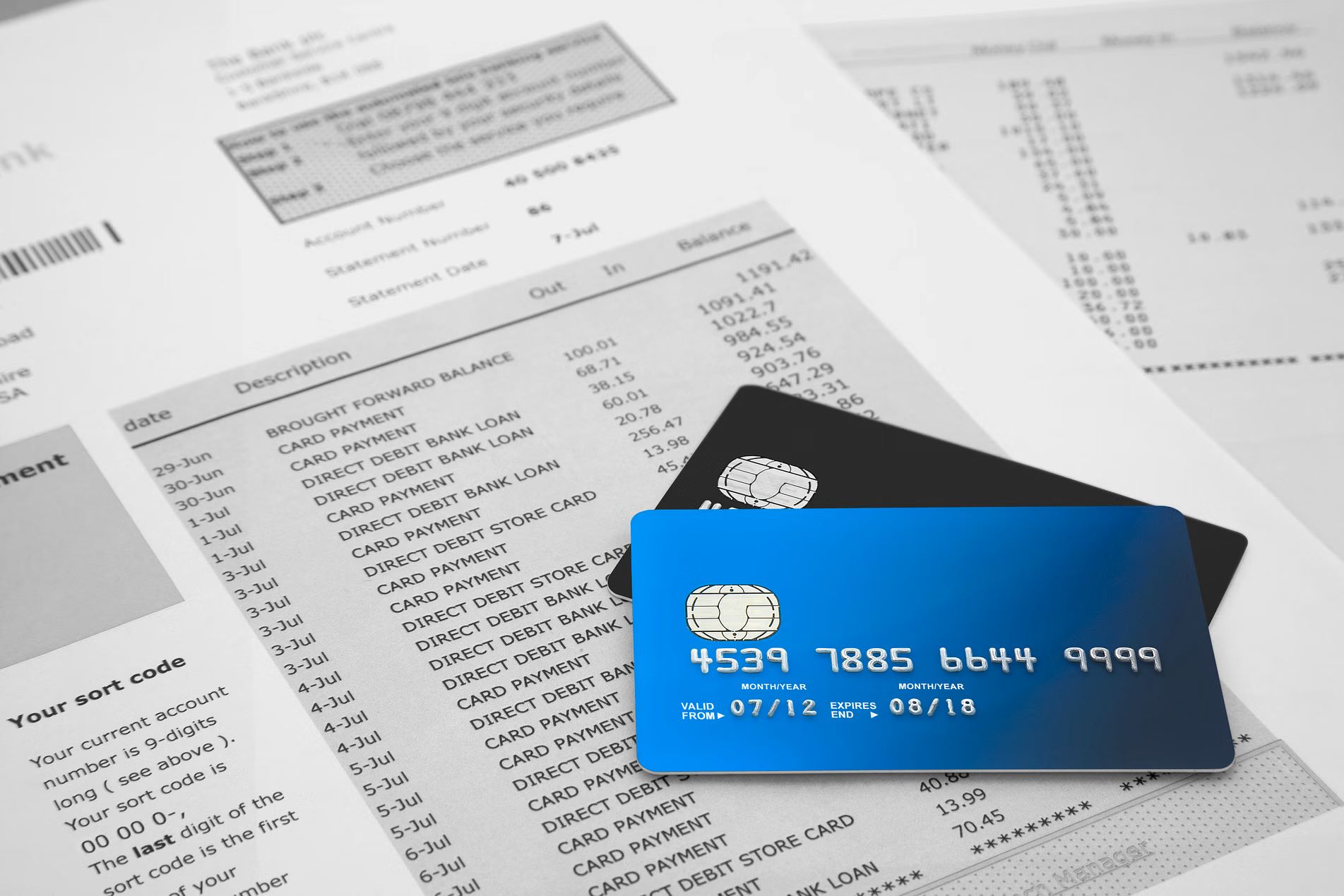

Finance
How Fast Does A Car Loan Build Credit
Modified: March 6, 2024
Build credit fast with a car loan. Finance your dream car and boost your credit score. Find out how to improve your credit with a car loan
(Many of the links in this article redirect to a specific reviewed product. Your purchase of these products through affiliate links helps to generate commission for LiveWell, at no extra cost. Learn more)
Table of Contents
- Introduction
- Understanding Credit Scores
- How Credit Scores are Calculated
- The Role of Car Loans in Building Credit
- Factors That Impact Credit Building with Car Loans
- Timely Payments and Credit Building
- Loan Length and Credit Building
- Credit Utilization and Credit Building
- Other Tips for Building Credit with Car Loans
- Common Misconceptions About Car Loans and Credit Building
- Conclusion
Introduction
Building credit is an essential part of financial stability and achieving your long-term goals. While there are various methods to establish credit, one avenue that often comes to mind is taking out a car loan. However, many people wonder just how fast a car loan can build credit and what factors influence the process.
Before diving into the details, let’s first understand the basics of credit scores. Your credit score is a numerical representation of your creditworthiness, ranging from 300 to 850. It is a measure of how likely you are to repay your debts based on your borrowing history and financial behavior. Lenders use this score to determine your eligibility for loans and credit cards, as well as the interest rates you will be offered.
When it comes to calculating your credit score, several factors come into play. These include your payment history, the amount of debt you have, the length of your credit history, the types of credit you have, and any new credit inquiries you make. Each factor has a different weight in the overall calculation.
Now, let’s explore the role of car loans in building credit. Taking out a car loan can be an effective way to establish credit or improve an existing credit score. When you make timely payments on your car loan, it shows lenders that you are responsible and reliable in meeting your financial obligations. This, in turn, boosts your creditworthiness and enhances your chances of being approved for future loans or credit cards with favorable terms.
However, it’s important to note that building credit with a car loan is not instantaneous. It takes time, consistency, and responsible financial management to see significant improvements in your credit score. That being said, there are several factors that can influence how fast your car loan builds credit.
In the following sections, we will delve into the key factors that impact credit building with car loans and provide tips on how to maximize the benefits of your car loan for credit building purposes.
Understanding Credit Scores
Before delving into how car loans impact credit scores, it’s crucial to have a basic understanding of what credit scores are and how they are calculated. Credit scores are numerical representations of an individual’s creditworthiness, indicating their ability to manage and repay their debts. These scores are used by lenders to assess the risk of lending to a particular individual.
The most commonly used credit scoring model is FICO (Fair Isaac Corporation), which assigns a score ranging from 300 to 850. The higher your credit score, the more favorable terms and interest rates you can expect when applying for credit. While there are alternative credit scoring models, such as VantageScore, FICO remains the most widely recognized and utilized.
The calculation of a credit score is based on several factors, each carrying a certain weight:
- Payment history: This is the most significant factor, accounting for approximately 35% of your credit score. It takes into consideration whether you have made timely payments on your debts, including credit cards, loans, and mortgages. Consistently making on-time payments is crucial for maintaining a good credit score.
- Amount owed: This factor accounts for about 30% of your credit score and looks at the total amount of debt you owe, including credit card balances and outstanding loans. It also considers your credit utilization ratio, which is the amount of credit you are using compared to your total available credit.
- Length of credit history: The length of time you have had credit accounts for approximately 15% of your credit score. A longer credit history demonstrates your ability to manage credit over time.
- Credit mix: This factor, accounting for around 10% of your credit score, evaluates the types of credit you have. Having a healthy mix of credit, such as credit cards, loans, and mortgages, can positively impact your credit score.
- New credit: This factor considers any new credit accounts or credit inquiries you have made and typically makes up about 10% of your credit score. Applying for multiple new credit accounts within a short period of time can negatively impact your score.
Understanding these factors will help you comprehend how car loans can affect your credit score and how you can strategically manage your finances to build credit effectively.
How Credit Scores are Calculated
While credit scores are numerical representations of your creditworthiness, the exact calculation process may seem like a complex and mysterious algorithm. However, understanding the basic components of credit score calculation can provide valuable insights into how your financial behavior impacts your score.
The most commonly used credit scoring model is the FICO (Fair Isaac Corporation) scoring system. FICO scores are calculated using five main factors, each with a specific weight:
- Payment History (35%): Demonstrating a consistent track record of making timely payments on your debts is crucial for a healthy credit score. Late payments, delinquencies, and accounts in collections can significantly harm your score.
- Amounts Owed (30%): The amount of debt you owe, also known as your credit utilization, plays a significant role in your credit score. It is recommended to keep your credit utilization ratio below 30% to maintain a good score.
- Length of Credit History (15%): The length of time you have had credit accounts impacts your score. A longer credit history demonstrates your ability to manage credit responsibly over time.
- Credit Mix (10%): Having a diverse mix of credit accounts, such as credit cards, loans, and mortgages, can positively impact your credit score. However, it is important to only take on credit that you can comfortably manage.
- New Credit (10%): Opening multiple new credit accounts within a short period can indicate financial instability and may negatively impact your credit score. It is best to be strategic and deliberate when applying for new credit.
These factors are used to evaluate your credit report, which includes information about your borrowing history, payment behavior, and outstanding debts. The FICO scoring system then calculates your credit score based on these factors.
It is important to note that while FICO is the most commonly used credit scoring model, there are other models available, such as VantageScore. While the exact calculation may vary slightly between models, the core components remain similar.
Keep in mind that credit scores are not static and can change over time based on your financial behavior. Consistently practicing responsible credit management, such as making timely payments, keeping debt levels low, and maintaining a diverse mix of credit accounts, can help improve and maintain a healthy credit score.
The Role of Car Loans in Building Credit
Car loans play a significant role in building credit, especially for individuals who are just starting to establish their credit history. Taking out a car loan and making timely payments can demonstrate your ability to handle and manage debt responsibly, which is a crucial factor in building and improving your credit score.
When you apply for a car loan, the lender assesses your creditworthiness based on factors such as your credit score, income, and employment history. If approved, the loan is reported to the credit bureaus, and your payment history on the loan becomes part of your credit report. This payment history, alongside other factors, contributes to the calculation of your credit score.
By consistently making on-time payments on your car loan, you showcase your reliability and commitment to meeting your financial obligations. This positive payment history reflects favorably on your credit report and can help improve your credit score over time.
Furthermore, car loans also contribute to building a diverse credit mix. Having a mix of different types of credit, such as credit cards and installment loans, is beneficial for your credit score. Car loans fall under the category of installment loans, where you make fixed monthly payments over a set period of time. Having a healthy mix of credit accounts signals to lenders that you are capable of managing different types of debts responsibly.
It’s important to note that building credit with a car loan is not a quick fix. It takes time and consistent payment history to see significant improvements in your credit score. However, starting with a car loan as a credit-building tool can provide a solid foundation for establishing a positive credit history.
Keep in mind that while car loans can contribute to building credit, they should be taken on responsibly. Only borrow what you can afford, and make sure to thoroughly review the terms and conditions of the loan before signing any agreements. Defaulting on a car loan or making late payments can have negative consequences for your credit score and financial well-being.
In the following sections, we will explore the factors that impact how fast a car loan builds credit and provide tips on maximizing the benefits of your car loan for credit building purposes.
Factors That Impact Credit Building with Car Loans
While taking out a car loan can be a useful tool for building credit, it’s important to understand the key factors that can influence how fast your credit builds with the loan. These factors can play a significant role in the impact the car loan has on your credit score and overall creditworthiness. Let’s explore some of the factors that can affect credit building with car loans:
- Payment History: Making timely payments is crucial for building credit with a car loan. Consistently paying on time and in the full amount demonstrates responsible financial behavior, positively impacting your credit score. On the other hand, late or missed payments can harm your credit and hinder the credit-building process.
- Loan Length: The length of your car loan can affect how fast your credit builds. A longer loan term provides more opportunities to establish a consistent payment history over time. However, it’s important to consider the overall interest costs associated with longer loan terms and choose a loan length that fits within your budget and financial goals.
- Credit Utilization: Your credit utilization, which compares the amount of credit you are currently using to your total available credit, is an essential factor in credit scoring. Paying down your car loan balance can lower your credit utilization ratio, positively affecting your credit score and overall credit-building efforts.
- Other Credit Accounts: While car loans can contribute to building credit, it’s important to have a mix of different types of credit accounts. Maintaining a healthy balance of installment loans, such as a car loan, and revolving credit, such as credit cards, can demonstrate your ability to manage various types of debts and positively impact your credit score.
These factors can have a significant impact on how fast your credit builds with a car loan. By understanding these influences, you can make informed decisions and take actions that optimize the credit-building potential of your car loan.
It’s worth noting that each individual’s credit-building journey is unique, and the exact impact of these factors may vary based on your specific circumstances. It’s important to regularly monitor your credit report and score to assess your progress and make any necessary adjustments to your credit-building strategies.
In the next sections, we will delve deeper into the importance of timely payments, loan length, credit utilization, and provide additional tips for building credit effectively with car loans.
Timely Payments and Credit Building
One of the most critical factors in building credit with a car loan is making timely payments. Consistently paying your car loan installments on time demonstrates responsible financial behavior and boosts your creditworthiness. Here’s why timely payments are essential for credit building:
Positive Payment History: Paying your car loan installments on time contributes to a positive payment history. This shows lenders that you are reliable and capable of meeting your financial obligations. A history of on-time payments can significantly improve your credit score over time.
Credit Score Impact: Payment history is the most significant factor in credit scoring, accounting for approximately 35% of your credit score. Late or missed payments can have a negative impact on your credit score, making it crucial to make all payments on time. A higher credit score not only improves your creditworthiness but also opens doors to better interest rates on future loans and credit cards.
Long-Term Credit Building: Building credit is a gradual process that requires consistency and discipline. Each on-time payment made on your car loan adds to your positive payment history and strengthens your creditworthiness. Over time, as you build a solid track record of timely payments, you establish a foundation of trust with lenders and increase your access to credit opportunities.
To ensure timely payments, it is helpful to set up autopay or reminders to avoid any missed due dates. Budgeting your finances and ensuring that you have sufficient funds to cover your car loan payments on time can prevent any unnecessary late fees or negative marks on your credit report.
It’s important to note that even a single late payment can have a significant impact on your credit score. Therefore, it is crucial to prioritize making your car loan payments on time every month.
By consistently making timely payments on your car loan, you not only build credit but also establish a positive financial reputation. Responsible financial behavior extends beyond just your car loan and can benefit you when applying for other types of credit in the future.
In the next section, we will explore the relationship between loan length and credit building, providing insights into optimizing this aspect of your credit-building journey with a car loan.
Loan Length and Credit Building
When it comes to building credit with a car loan, the length of the loan plays a role in the credit-building process. The loan length refers to the duration over which you repay the loan, typically measured in months or years. Understanding how loan length impacts credit building can help you make informed decisions to optimize your credit-building journey.
Payment History Accumulation: The length of your car loan allows for a greater accumulation of payment history. With a longer loan term, you have more opportunities to make consistent, on-time payments, which positively impact your credit score. Over time, this extended payment history demonstrates your ability to manage debt responsibly and contributes to the overall strength of your credit profile.
Steady Credit Growth: Building credit is a gradual process, and having a longer loan term can provide a steady growth trajectory. Consistently making payments over an extended period shows lenders that you are committed to meeting your financial obligations. This can instill confidence in lenders, making it easier for you to access credit in the future at favorable terms.
Impact on Credit Utilization: Loan length can also affect your credit utilization ratio, which is the amount of credit you are using compared to your total available credit. With a longer loan term, your loan balance is spread out over a more extended period. This can help lower your credit utilization and potentially have a positive impact on your credit score. However, it is important to note that the overall impact of loan length on credit utilization is dependent on your other credit accounts and utilization ratios.
While longer loan terms may offer benefits for credit building, it is essential to weigh the potential drawbacks. Longer loan terms often come with higher interest costs. It’s important to consider your budget and financial goals to ensure that the monthly payments fit within your means.
Additionally, if you have the ability to repay the loan faster than the agreed-upon term, doing so can save you money on interest and accelerate your credit-building progress. However, always review your loan agreement for any prepayment penalties or fees before making any additional payments.
Ultimately, the loan length needs to align with your financial situation and goals. Balancing a manageable monthly payment and a reasonable loan term can help you build credit effectively while also meeting your financial needs.
Next, we will explore the impact of credit utilization on credit building and provide tips on optimizing this aspect of your credit journey with a car loan.
Credit Utilization and Credit Building
When it comes to building credit with a car loan, credit utilization is an important factor to consider. Credit utilization refers to the amount of credit you are currently using compared to your total available credit. Understanding the impact of credit utilization on credit building can help you make informed decisions to optimize your credit-building journey.
Significance of Credit Utilization: Credit utilization is a key component in credit scoring algorithms, accounting for approximately 30% of your credit score. Maintaining a low credit utilization ratio demonstrates responsible credit management and can have a positive impact on your credit score.
Impact of Car Loans on Credit Utilization: Taking out a car loan adds to your total amount of credit, but it doesn’t necessarily affect your credit utilization directly. The credit utilization ratio is primarily influenced by revolving credit accounts, such as credit cards. However, by paying down your car loan balance over time, you can indirectly lower your overall credit utilization ratio, positively impacting your credit score.
Considerations for Credit Utilization: While car loans may not directly impact credit utilization, it’s important to manage your overall credit utilization ratio to maximize credit-building potential. Here are some tips:
- Keep Credit Card Balances Low: Since credit cards heavily impact credit utilization, aim to keep your credit card balances as low as possible. Ideally, it’s recommended to utilize no more than 30% of your available credit on each card to maintain a healthy credit utilization ratio.
- Pay Off Credit Card Balances: If you have high credit card balances, consider paying them off or reducing them as much as possible. Lowering your credit card balances can significantly improve your credit utilization ratio and positively impact your credit score.
- Continuously Monitor Credit Utilization: Regularly monitor your credit utilization ratio and make adjustments as needed. By staying mindful of your credit utilization, you can proactively manage your credit and keep it within a healthy range.
Building credit with a car loan goes beyond credit utilization, but effectively managing your overall credit utilization can enhance your credit-building efforts. By maintaining low credit card balances and paying down debts, you can positively impact your credit utilization ratio and strengthen your credit profile.
It’s important to note that credit utilization is just one aspect of credit building, and other factors, such as payment history and credit mix, also play significant roles. By focusing on responsible credit management across all your credit accounts, including your car loan, you can build credit effectively and increase your creditworthiness.
In the next section, we will provide additional tips for building credit with car loans and address common misconceptions surrounding credit building with car loans.
Other Tips for Building Credit with Car Loans
Building credit with a car loan involves more than just making timely payments. Here are some additional tips to maximize the benefits of your car loan for credit building purposes:
- Monitor your credit report: Regularly check your credit report to ensure that all information is accurate and up to date. Monitoring your credit report allows you to identify any errors or discrepancies that could be negatively impacting your credit score.
- Manage your overall debt: In addition to your car loan, it’s essential to manage your overall debt responsibly. Minimize unnecessary debt and make timely payments on all your obligations, including credit cards, student loans, and mortgages. Taking a holistic approach to debt management can strengthen your credit profile.
- Avoid unnecessary credit applications: Every time you apply for new credit, such as a credit card or loan, it triggers a hard inquiry on your credit report. Multiple hard inquiries within a short period can negatively impact your credit score. Be mindful of unnecessary credit applications and only apply for credit when necessary.
- Don’t close old credit accounts: While it’s important to manage your credit responsibly, closing old credit accounts can potentially harm your credit score. Older accounts contribute to your credit history and demonstrate your ability to manage credit over time. Keep your existing credit accounts open, even if they have a zero balance, to maintain a longer credit history.
- Establish an emergency fund: Building an emergency fund can provide financial stability and peace of mind. Having funds set aside for unexpected expenses can prevent you from relying heavily on credit and potentially falling into debt. A strong financial foundation can support your credit-building efforts.
- Seek professional advice if needed: If you are unsure about the best strategies for building credit or managing your finances, consider seeking guidance from a financial advisor or credit counseling service. They can provide personalized advice and guidance tailored to your specific situation.
Building credit with a car loan requires discipline, patience, and responsible financial management. By implementing these tips and staying committed to making timely payments, you can steadily build and improve your credit score over time.
It’s important to remember that building credit is a journey, and results may not be immediate. Be consistent, stay proactive, and don’t get discouraged by minor setbacks along the way. With time and responsible credit management, you can achieve a strong credit profile that opens doors to better financial opportunities.
Now, let’s address some common misconceptions about building credit with car loans.
Common Misconceptions About Car Loans and Credit Building
When it comes to car loans and credit building, there are several misconceptions that can lead to confusion or misinformed decisions. Let’s address some of the most common misconceptions:
- Car loans have an immediate impact on credit scores: While car loans can contribute to building credit, they don’t have an immediate impact. Building credit takes time, and it requires consistent and responsible payment behavior over an extended period. It’s important to have realistic expectations and be patient with the credit-building process.
- Carrying a car loan is detrimental to credit: Carrying a car loan itself is not detrimental to credit, as long as payments are made on time and responsibilities are met. In fact, making timely payments on a car loan can positively impact credit scores by demonstrating responsible financial behavior.
- Paying off a car loan improves credit immediately: While paying off a car loan is an accomplishment, it doesn’t automatically result in an immediate boost to your credit score. Your credit history and payment behavior over time are key factors in determining your credit score. However, paying off a car loan can reduce your overall debt load and improve your credit utilization ratio, which can have a positive impact on your credit score in the long run.
- Credit scores only consider car loan payments: Credit scores consider various factors beyond just car loan payments. Your overall credit history, including credit card payments, student loan payments, and mortgage payments, are also factored into your credit score. It’s important to manage all your credit accounts responsibly to build a strong credit profile.
- Credit scores can’t be improved once a car loan is taken: It is never too late to start improving your credit score, even after taking out a car loan. By making timely payments, managing your overall debt, and practicing responsible credit behavior, you can still positively impact your credit. Building good credit habits is an ongoing process, and there are always opportunities to improve your credit score.
Understanding these common misconceptions can help you make informed decisions and navigate the credit-building journey more effectively. Building credit with a car loan takes time, consistency, and responsible financial management. By staying proactive, making timely payments, and managing your overall credit, you can gradually improve your creditworthiness.
Now, let’s conclude our discussion on building credit with car loans.
Conclusion
Building credit with a car loan is a significant step towards achieving financial stability and reaching your long-term goals. While it’s not an overnight process, understanding the factors that impact credit building with car loans can help you make informed decisions and optimize your credit-building journey.
Timely payments on your car loan are of utmost importance. Consistently paying on time demonstrates responsible financial behavior and builds a positive payment history, which is key to improving your credit score over time.
The length of your car loan plays a role in credit building as well. A longer loan term allows for a greater accumulation of payment history and provides a steady growth trajectory for credit. However, it’s essential to consider the overall cost of the loan and choose a term that aligns with your budget and financial goals.
Credit utilization, although not directly impacted by car loans, should be managed effectively. Keeping credit card balances low and paying down debts can positively impact your credit utilization ratio and strengthen your credit profile.
In addition to these factors, it’s important to monitor your credit report, manage your overall debt responsibly, and avoid unnecessary credit applications. By taking a comprehensive approach to credit building and incorporating these strategies, you can maximize the benefits of your car loan for credit building purposes.
Remember, building credit is a journey that requires patience and consistency. While there may be misconceptions surrounding car loans and credit building, staying informed and practicing responsible financial habits will set you on the path to a strong credit profile.
By utilizing the tips outlined in this article, you can establish a solid foundation for credit building with a car loan. With time and diligence, you’ll be well on your way to achieving your financial goals and enjoying the benefits of a favorable credit score.














